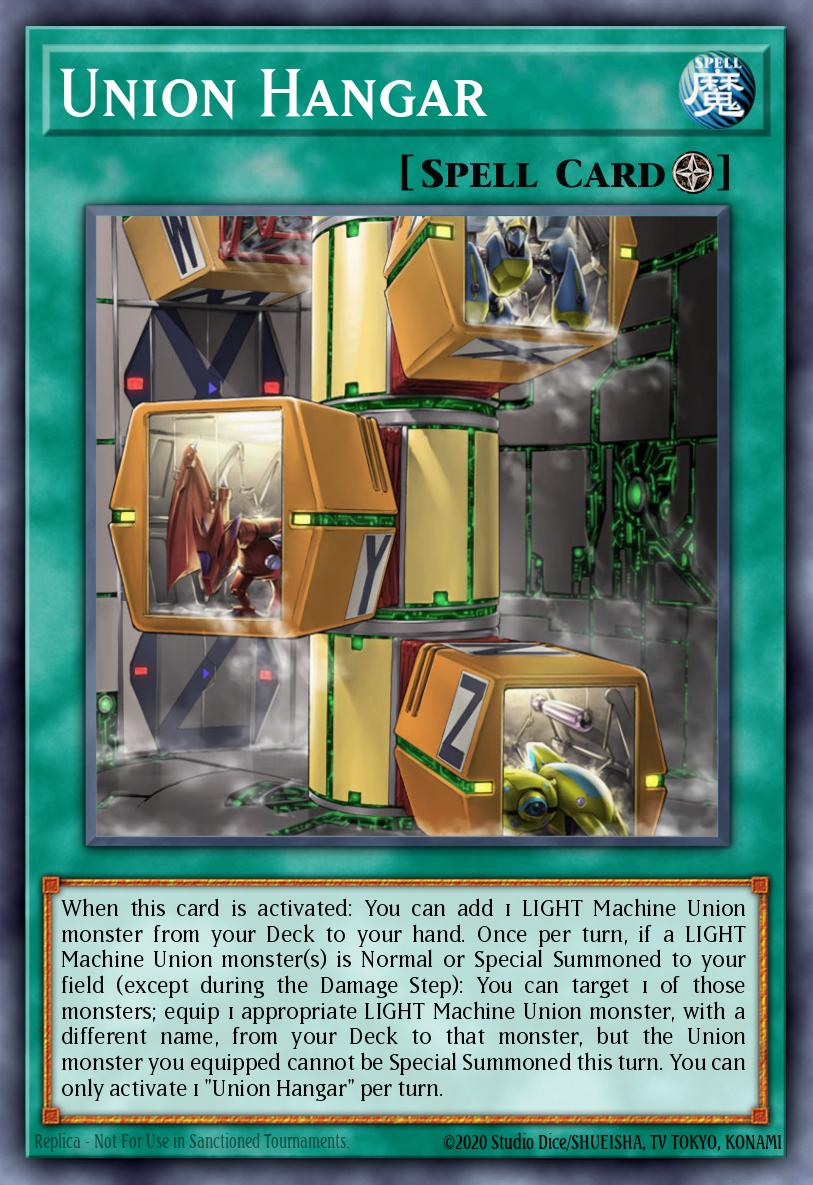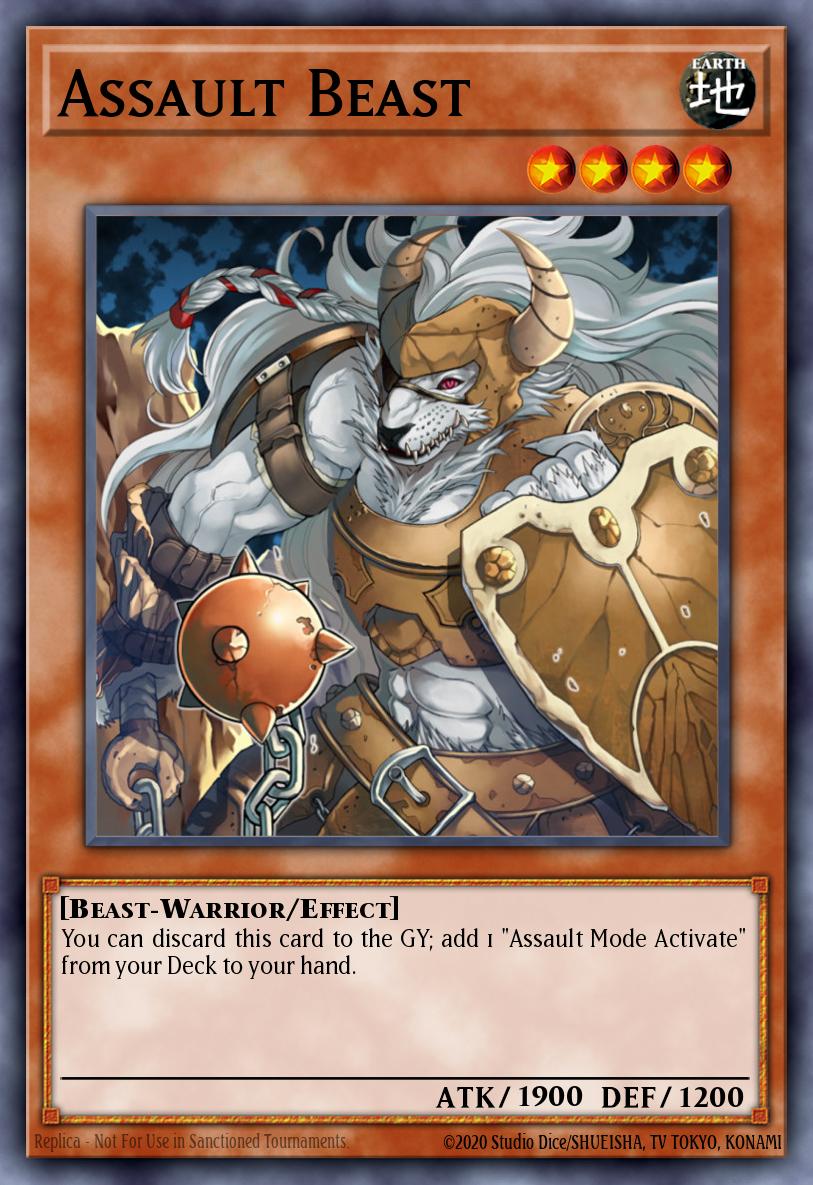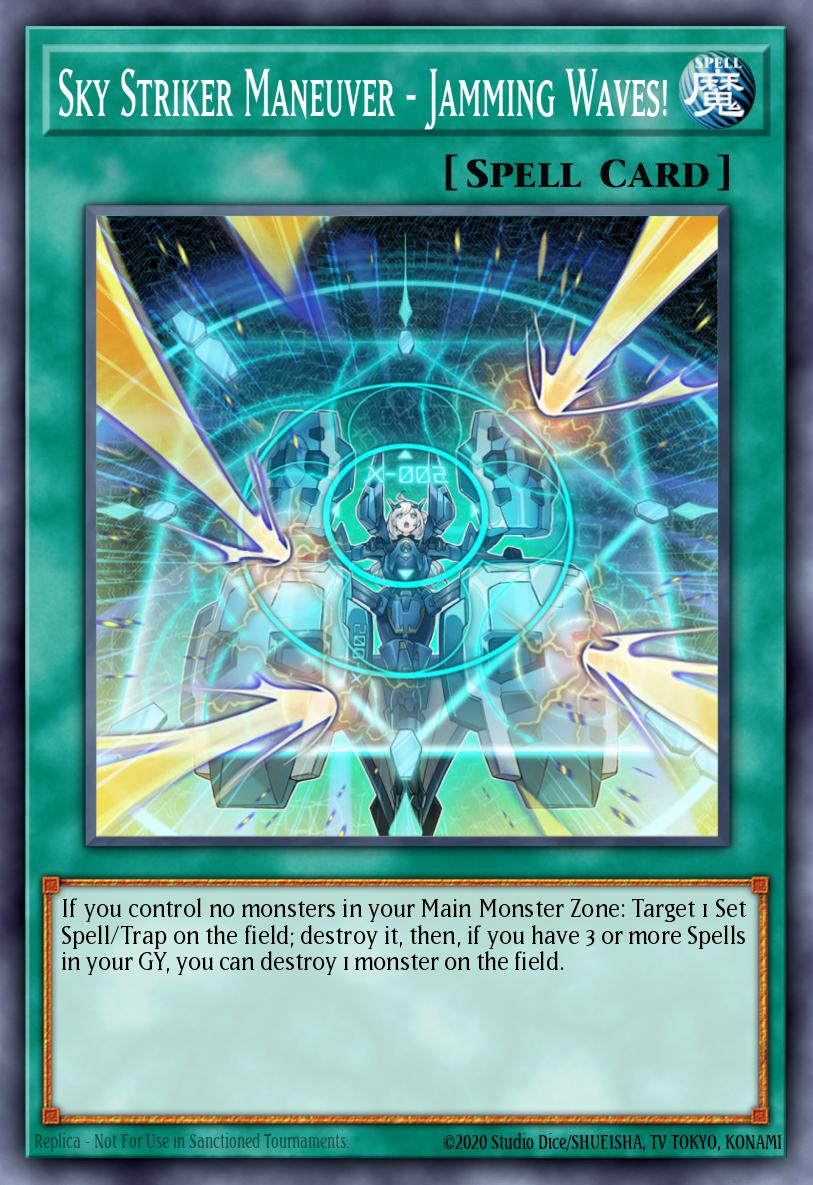Play Starters
Play starters are the cards your deck revolves around. They need to be in your opening hand at all cost, or else your game plan is busted. You'll want to be running all 3 copies, and want to search even more. A good example of this kind of card is Union Hangar, from ABC decks. ABC's strategy isn't a linear combo, but Hangar is still vital for working around the old Union mechanic. As a Field Spell, Union Hangar is very searchable. Past ABC decks have been desperate enough to not just play Terraforming, but also mess around with Set Rotation and Ancient Fairy Dragon. Other examples of cards like this are Psi-Reflector in Assault Mode decks and Neptabyss, the Atlantean Prince in WATER decks.
 Since getting these cards is so important, it can sometimes be OK to dedicate a minor combo or impractical tech just to finding it. Even if Terraforming didn't exist, Union Hangar could be considered searchable. Even this has limits, of course. Dogu can, technically, search any monster. But usually, the whole reason you want to search cards is to find them fast. Waiting for your opponent's action doesn't achieve that, so monsters without other searchers aren't really searchable. W Nebula Meteorite is an example of a play starter that isn't searchable enough. It's the only good Worm card, but the only way to search it is with Trap Trick. Also, some starters use your Normal Summon, like Marincess Sea Horse. This invalidates searchers you need to Normal Summon, like Lady Debug.
Since getting these cards is so important, it can sometimes be OK to dedicate a minor combo or impractical tech just to finding it. Even if Terraforming didn't exist, Union Hangar could be considered searchable. Even this has limits, of course. Dogu can, technically, search any monster. But usually, the whole reason you want to search cards is to find them fast. Waiting for your opponent's action doesn't achieve that, so monsters without other searchers aren't really searchable. W Nebula Meteorite is an example of a play starter that isn't searchable enough. It's the only good Worm card, but the only way to search it is with Trap Trick. Also, some starters use your Normal Summon, like Marincess Sea Horse. This invalidates searchers you need to Normal Summon, like Lady Debug.Combo Pieces
Combo pieces are an important part of a linear combo, but not the start or end. You generally only play one of these. Talking about these is a little backwards compared to the last section. With play starters, you already know you want to play them, and them being searchable just makes your deck more consistent. Here, whether a card is searchable determines whether a combo using it can exist. Only if so do you consider playing it. Cards like this include Orcust Cymbal Skeleton, Assault Beast, and Speedroid Taketomborg.
 Here, what kinds of cards can search it is much more important than how many. You don't particularly care about a bunch of different ways to add the card to your hand. You just need that one other card to enable whatever combo it's a part of. Also, depending on the card, searching doesn't even necessarily mean the hand at all. It just means getting it wherever it needs to be to be useful, which can be the field or the grave. It can be important to run multiple copies of the searcher. Speedroid Taketomborg has fallen out of favour because you can draw it before its Limited searcher.
Here, what kinds of cards can search it is much more important than how many. You don't particularly care about a bunch of different ways to add the card to your hand. You just need that one other card to enable whatever combo it's a part of. Also, depending on the card, searching doesn't even necessarily mean the hand at all. It just means getting it wherever it needs to be to be useful, which can be the field or the grave. It can be important to run multiple copies of the searcher. Speedroid Taketomborg has fallen out of favour because you can draw it before its Limited searcher.Toolbox Cards
Toolbox cards help respond to various situations after you're already established in the game. These can be backup targets for search cards after they've already got your play starter. They're too situational to necessarily be useful if drawn, so you'll usually play 1 of each. A lot of the incidental Sky Striker cards like Jamming Waves fall under this category, as well as cards like Orcustrated Return and Altergeist Kunquery.
 Using cards like these takes some fairly specific circumstances. Even if a card is searchable, you don't want to run a bunch of searchers just for one toolbox card. The whole point is that you can get it if you need it, and ignore it when you don't. The ideal situation is one flexible searcher and a bunch of searchable cards with one copy each. If all a card does is search one toolbox, it's usually not worth it.
Using cards like these takes some fairly specific circumstances. Even if a card is searchable, you don't want to run a bunch of searchers just for one toolbox card. The whole point is that you can get it if you need it, and ignore it when you don't. The ideal situation is one flexible searcher and a bunch of searchable cards with one copy each. If all a card does is search one toolbox, it's usually not worth it.An example of a toolbox card that isn't searchable enough would be Opti-Camouflage Armor in a Skull Servant/Wight deck. Attacking directly with King of the Skull Servants is cute, but not cute enough to run more than one copy of Armor. Since the only way to search it is stuff like Hidden Armory, which is roughly the same as running more copies, most of the time you just won't draw it.
Conclusion
A card's role in a deck has a huge effect on if you can really call it searchable. Even beyond the obvious step of discounting jokes like Single Purchase, a card that could be searched if you need it can be not worth playing even as a tech. Cards have to pay back the opportunity cost of playing their searchers. Understanding these nuances can be crucial to building a more consistent deck.




